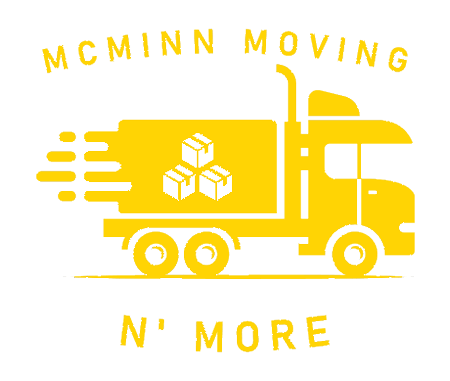Moving into a new home is exciting, but packing for a residential move can be one of the most stressful parts of the process. The way belongings are packed determines whether they arrive safely, how organized the unpacking will be, and even how much the overall move costs. Many families start with enthusiasm, only to realize midway that they underestimated the effort and planning required.
This guide covers the essential do’s and don’ts of packing for a residential move, based on expert advice and industry best practices. It provides practical strategies to protect valuables, save time, and reduce stress. Whether hiring professionals or managing most of the move independently, following these tips will make a big difference.
Why Packing Matters in Every Residential Move
Packing is more than just placing items in boxes—it’s about creating a system that ensures safety, efficiency, and convenience. Improper packing can lead to broken items, damaged furniture, and unnecessary stress. On the other hand, a well-organized approach prevents costly mistakes and makes moving day far smoother.
A professional moving company in Athens often stresses the importance of early preparation. Many clients think packing is quick, but when everything from fragile glassware to electronics and clothing is considered, the scale becomes clear. Planning ahead means fewer surprises and fewer last-minute scrambles.

Do’s: Smart Strategies for Packing Success
1. Start Early and Create a Timeline
One of the most common mistakes people make is waiting too long. Packing often takes longer than expected because of sorting, decluttering, and wrapping fragile items. Experts recommend starting the process at least four weeks before moving day. Begin with rarely used rooms like the basement, attic, or guest bedrooms, and work toward everyday spaces closer to the move.
2. Declutter Before You Pack
A residential move is the perfect opportunity to minimize clutter. Go through closets, drawers, and storage spaces to separate items into three categories: keep, donate, and discard. There’s no reason to pay for moving things that will never be used again. Selling gently used items online or donating to local charities can also lighten the load and even save on moving costs.
3. Invest in Quality Packing Materials
High-quality materials prevent damage during transit. Professional movers recommend using sturdy boxes, packing tape, bubble wrap, packing paper, and specialty containers for delicate items. While it’s tempting to reuse old boxes from grocery stores, they might not withstand the weight of heavy belongings. When in doubt, ask a moving company in Athens for their recommended materials or packing kits.
4. Label Every Box Clearly
Every box should have a clear label on multiple sides indicating its contents and destination room. Color coding or numbering boxes is an excellent strategy for easy identification. Proper labeling not only helps during unloading but also ensures fragile items are handled with care throughout the process.
5. Pack Room by Room
Instead of mixing items from multiple rooms in one box, keep each box dedicated to a single room. This makes unpacking faster and prevents confusion when setting up the new home. It also helps movers place boxes in the correct locations on moving day.
6. Protect Fragile Items
Wrap glassware, dishes, and breakable décor individually with packing paper or bubble wrap. Plates should be packed vertically like records, and glasses should be placed upside down with cushioning around them. Fragile boxes should always be marked as “FRAGILE” and ideally placed on top of heavier boxes.
7. Prepare an Essentials Box
The first night in a new home can be chaotic, so pack an essentials box with toiletries, a change of clothes, phone chargers, snacks, and basic kitchen supplies. Keep this box accessible during the move so there’s no need to dig through multiple boxes at midnight.
Don’ts: Common Packing Mistakes to Avoid
1. Don’t Overpack Boxes
It may seem efficient to fill a box completely, but overpacking leads to damage and injuries. Heavy boxes are harder to lift and more likely to tear. Distribute weight evenly and stick to a maximum of 50 pounds per box whenever possible.
2. Don’t Leave Packing Until the Last Minute
Rushed packing almost guarantees broken items and missing essentials. Waiting until the final days can turn an exciting move into a stressful experience. Always give yourself enough time to sort, organize, and carefully protect belongings.
3. Don’t Use Newspaper for Wrapping
While newspaper seems like an inexpensive option, the ink can transfer onto dishes, glassware, and other surfaces. Instead, choose clean packing paper or bubble wrap for all delicate items.
4. Don’t Pack Hazardous or Perishable Items
Items like paint, chemicals, cleaning supplies, or perishable food should never go into moving boxes. These can leak, spoil, or even create safety hazards during transit. Dispose of them properly or use them up before moving day.
5. Don’t Forget to Measure Furniture
Nothing is worse than arriving at a new home only to find the couch won’t fit through the doorway. Measure large furniture pieces and doorways in advance to avoid surprises.
Professional Packing vs. DIY: Which is Better?
Some homeowners choose to handle packing themselves to save money, while others prefer the convenience of professional services. Hiring experts ensures proper handling of fragile and valuable items, reduces stress, and saves time. A reliable moving company in Athens typically offers full-service packing options or partial assistance for items like antiques, electronics, and artwork.
For those who choose DIY, it’s important to follow best practices and invest in quality supplies. Combining professional advice with careful planning can make a self-managed packing process successful.
Packing Checklist for a Smooth Move
To keep everything on track, here’s a quick checklist of essentials:
- Start packing at least 4 weeks in advance
- Declutter and donate unwanted items
- Purchase quality boxes and packing supplies
- Label boxes by room and content
- Wrap fragile items with bubble wrap
- Prepare an essentials box for the first night
- Confirm moving date with your movers
This simple list helps ensure no critical steps are missed along the way.
Packing Tips for Special Items
Electronics
Use original boxes whenever possible. Remove batteries from devices to prevent leaks and back up important data before packing computers or tablets.
Clothing
Wardrobe boxes allow clothes to hang during transport, keeping them wrinkle-free. Alternatively, roll clothing instead of folding to save space in regular boxes.
Artwork and Mirrors
Wrap these in bubble wrap and use specialty boxes designed for large, flat items. Mark them as fragile and avoid stacking anything on top.
Appliances
Clean and dry appliances thoroughly before packing. Remove any detachable parts and secure cords to avoid damage.
How Early Should You Pack Before a Move?
Experts recommend beginning the process at least a month before the scheduled move. Start with seasonal items, decorative pieces, and anything not in daily use. This reduces stress during the final week and ensures everything is organized.
Top Mistakes to Avoid When Packing
- Skipping inventory lists
- Packing heavy items in large boxes
- Forgetting to secure liquids in plastic bags
- Not labeling boxes properly
- Overlooking insurance coverage for valuable items
Final Thoughts
Packing for a residential move doesn’t have to be overwhelming when approached strategically. Start early, use quality materials, and stay organized throughout the process. For those who prefer a hassle-free experience, partnering with a trusted moving company in Athens ensures every detail is handled professionally. With the right approach, moving day becomes an exciting new chapter instead of a stressful ordeal.
FAQs
1. How far in advance should I start packing for a residential move?
It’s best to start packing at least 4 weeks before your move. Begin with items you don’t use daily and work toward essentials as moving day approaches.
2. What packing materials do I need for a residential move?
You’ll need sturdy boxes, packing tape, bubble wrap, packing paper, and markers. Specialty boxes for electronics and wardrobe items are also helpful.
3. Should I hire professionals for packing or do it myself?
Hiring professionals saves time and ensures proper handling of fragile items. However, with planning and quality materials, DIY packing can also work well.
4. How do I protect fragile items during a move?
Wrap fragile items individually in bubble wrap or packing paper, pack plates vertically, and fill empty spaces with cushioning. Always mark boxes as “FRAGILE.”
5. What should go in an essentials box for moving day?
Pack toiletries, clothes, chargers, snacks, basic kitchen items, and important documents. Keep this box accessible for the first day in your new home.
6. Can I use old boxes for packing?
While it’s possible, old boxes may not be strong enough for heavy loads. High-quality boxes from a moving supplier or a moving company in Athens are safer.
7. How do I label boxes correctly for a move?
Label each box with its contents and destination room. Use large, clear writing and consider color coding for better organization.
8. What should I avoid packing for a residential move?
Avoid packing hazardous materials like chemicals, flammable liquids, and perishables. These can cause damage or create safety hazards during transport.
9. How do I pack electronics for moving?
Use original boxes when possible, remove batteries, and wrap components securely. Back up data before packing computers and tablets.
10. How can I make packing less stressful?
Start early, declutter before packing, and pack room by room. Consider professional help for fragile or valuable items to reduce stress.
